17 Human Superfoods for Dogs: A Checklist
4/9/24
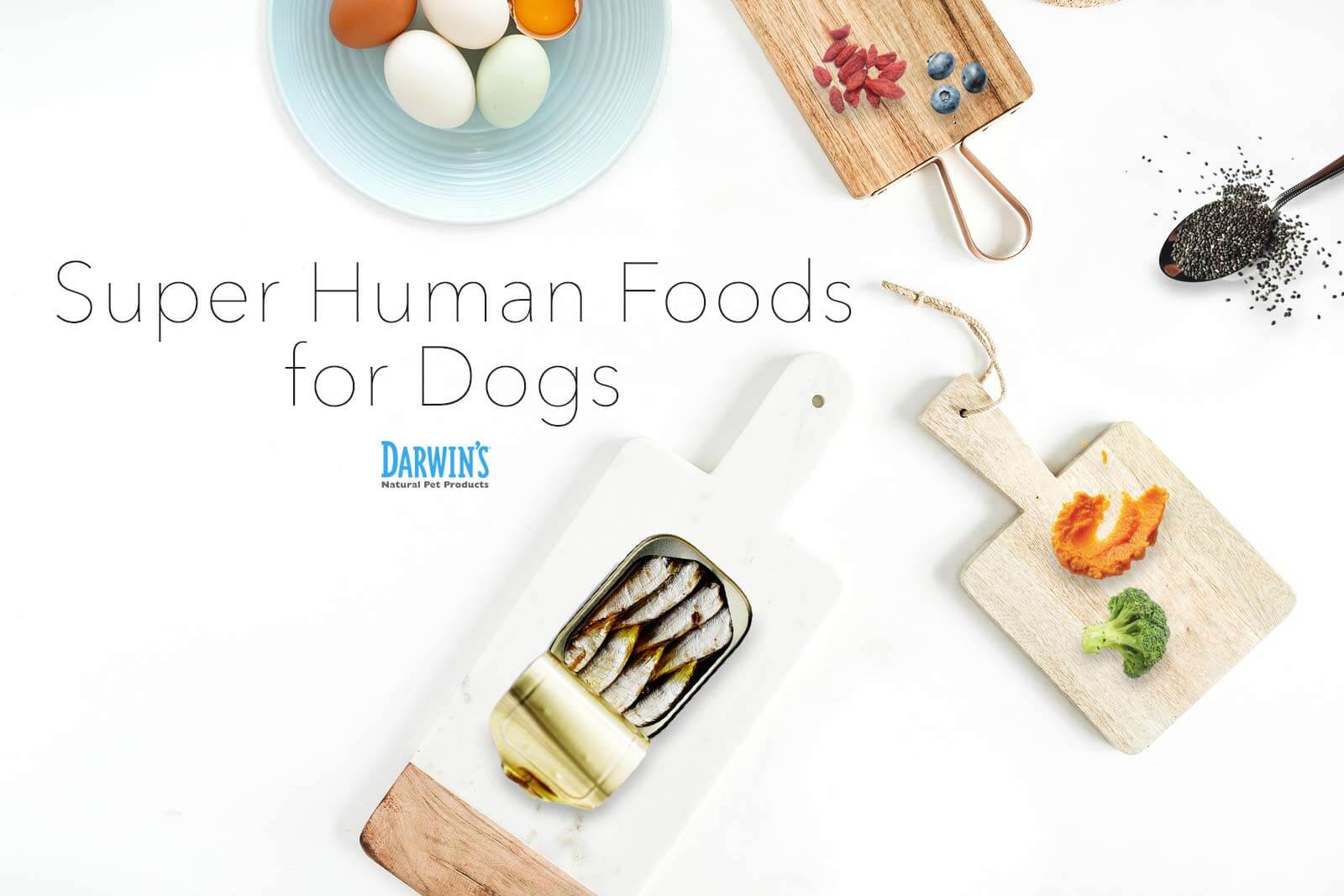
Superfoods, which are foods packed with nutrients, aren’t just for humans. Humans and dogs can share several common foods that are nutritionally dense and pack a lot of healthful benefits into a serving. These super foods can help you and your pet fight disease, boost energy and maintain good health in general. They make great additions to your diet – and your dog’s diet too!
Whether you’ve got a new pup, a dog prone to allergies or a senior in its golden years, these fresh, dog-friendly superfoods will keep your best friend healthy on the inside and out. Plus, for once you can steal your dog’s food instead of it being the other way around!
What Makes Superfoods for Dogs “Super”?
Superfoods for dogs provide nutrient-rich, easily digestible options that support overall health, immunity, joint and bone health, skin and coat health, weight management, dental health, and antioxidant protection. They also serve as enjoyable, natural treats when used in moderation and integrated into a well-balanced diet with veterinary guidance.
Here is a list of superfoods that are safe for dogs, ranging from fruits and vegetables to seafood and farm products:
Fruits
Blueberries
Blueberries are available all year, and whether fresh or frozen, are great training treats for your canine companion. They are loaded with phytochemicals, and their deep blue hue is the result of powerful antioxidants called anthocyanidins. Blueberries are also a good source of healthy fiber, manganese, and vitamins C and E.
Goji Berries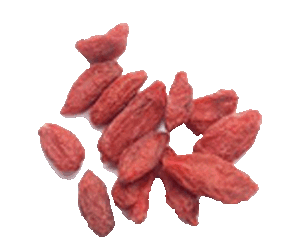
Goji berries are typically sold dried and resemble red raisins. You may want to soak in water to soften them, otherwise, they may pass through your dog’s digestive system. These berries are rich in amino acids and antioxidants, particularly carotenoids such as beta-carotene and zeaxanthin. Goji extracts may help prevent the growth of cancer cells, reduce blood glucose, and lower cholesterol levels.
Watermelon
Watermelon can be a safe and hydrating treat for dogs in moderation. It's low in calories, contains vitamins and antioxidants, and can aid digestion due to its fiber content. However, remove seeds and the rind before serving, and be cautious of the sugar content. Offer watermelon as an occasional treat, and watch for any allergies or digestive issues when introducing it to your dog's diet. Always consult your vet before making significant dietary changes for your dog.
Vegetables
Broccoli 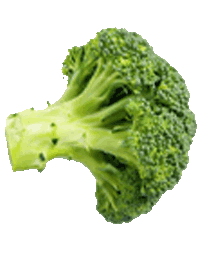
Broccoli supports detoxification processes in your dog’s body (and yours). It contains healthy fiber to aid digestion; is rich in beneficial nutrients like potassium, calcium, protein and vitamin C; has anti-inflammatory properties; supports eye health; helps repair skin damage; and supports heart health. Cruciferous vegetables such as broccoli contain goitrogenic compounds and may need to be cooked before feeding. Dr. Jean Dodds, a leading veterinarian, does not recommend feeding broccoli to any animal with a thyroid disease.
Chia Seeds 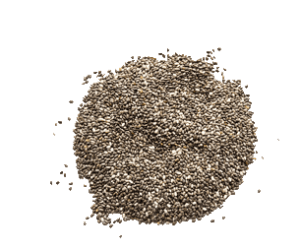
These seeds have several of the same benefits as the more well-known ‘super seed’ flax, but unlike flax seed, you don’t need to grind them to reap the health benefits. The nutritional benefits of chia include fiber, omega-3 fatty acids, calcium, antioxidants, and even protein. Highly absorbent, they can also help hydrate the body. You simply sprinkle some daily on their food!
Quinoa
Quinoa is a safe and nutritious choice for dogs. It offers complete protein, fiber for digestion, essential vitamins, and minerals. It's gluten-free and can be a valuable energy source for active dogs. When feeding quinoa to your dog, make sure it's plain and cooked, without harmful seasonings. Introduce it gradually and consult your vet for dietary guidance.
Pumpkin 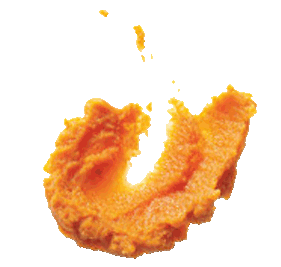
Low in calories and high in soluble fiber, pumpkin helps maintain a healthy digestive tract.Pumpkin is another great antioxidant, but it also helps with diarrhea and constipation. It is low in sodium and exceptionally high in carotenoids, potassium and vitamin C, and has some calcium and B vitamins. Canned organic pureed pumpkin can be found at food stores but be sure that it is pure, BPA free and not a pie filling, which typically has sugar and/or spices added. Winter squash and cooked sweet potatoes are recommended as well.
Carrots
Carrots are a superfood for dogs, packed with benefits. They're low in calories, high in fiber, promote dental health, provide essential vitamins and minerals, act as antioxidants, and offer hydration. Dogs often enjoy them as a natural, low-calorie treat. Just make sure to serve them raw and in bite-sized pieces. As with any new food, introduce carrots gradually and consult your vet for guidance on your dog's diet.
Sweet potato
It offers numerous benefits such as vitamins, minerals, and antioxidants that support overall dog health. They are good for digestion, low in fat, and provide a steady energy source. These hypoallergenic dog treats can also aid dental health. Serve them cooked and plain, in moderation, and consult your vet for dietary guidance tailored to your dog's needs.
Dark, leafy greens like Parsley and Kale
due to their rich nutrient content, antioxidants, and fiber, promoting overall health. However, feed them in moderation and consult your vet to ensure they suit your dog's dietary needs and health. Proper preparation can enhance digestibility.
Ginger and Turmeric
Ginger and turmeric are superfoods for dogs due to their anti-inflammatory, digestive, and immune-boosting properties. They can help with pain relief and overall well-being. However, introduce them in moderation and consult your vet for proper usage based on your dog's needs and size.
Fish & Seaweed
Oily Fish
Oily fishes such as sardines, anchovies, and fish oil are excellent sources of omega-3 fatty acids (DHA/EPA). Omega-3 fatty acids help prevent skin problems and allergies, help prevent arthritis and heart disease, and have been shown to improve behavior and intelligence (especially in puppies).
Nori & Kelp
Nori, a red seaweed, is low in calories and rich in vitamins, making it a healthy treat option. Kelp, a brown seaweed, is used in pet supplements and dog food for its potential benefits, such as promoting skin and coat health and supporting thyroid function. However, always use them in moderation and consult your vet to ensure they suit your dog's specific dietary needs.
Other Sources
Eggs 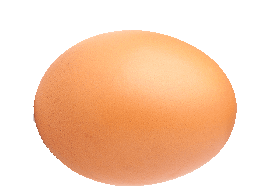
Raw eggs are another one of nature’s most wholesome foods for dogs. Eggs are not only economical, but they’re one of the most complete and nutritious foods available.Eggs are a nearly complete source of amino acids (the building blocks of proteins), and contain lots of vitamin A, riboflavin, folate, vitamin B12, iron, selenium and fatty acids. Feed the egg with the shell off as this could abrade GI mucosa. Whenever possible, try to find eggs from pasture raised (i.e. without hormones or antibiotics) chickens.
Olive Oil
Due to its healthy fats, omega-3s, anti-inflammatory properties, and antioxidants. When used in moderation, it can promote heart health, improve skin and coat, and aid digestion. Consult your vet for the right amount to add to your dog's diet.
Bone Broth
Due to its rich nutrients, including vitamins, minerals, and amino acids. It can promote joint health, aid digestion, keep dogs hydrated, stimulate appetite, and support the immune system. When using bone broth, ensure it's homemade or from a reputable source, serve it at the right temperature, and consult your vet for guidance on incorporating it into your dog's diet.
Yogurt
Yogurt is a beneficial addition to a dog's diet. It contains probiotics that promote healthy digestion and a strong immune system. Additionally, yogurt provides essential nutrients like calcium and protein. Choose plain, unsweetened yogurt and introduce it gradually to your dog's diet, especially if they have digestive sensitivities. Always consult your veterinarian for guidance on incorporating yogurt into your dog's nutrition plan.
When looking for new treats or ways to boost your dog’s diet, consider adding these nutritionally-packed components to complement your dog’s eating regime. Be sure to introduce these foods gradually, with the proper proportions, and check first with your veterinarian if your dog has any dietary or health concerns.
What are some of your favorite superfoods to share with your dog?
SOURCES:
- https://www.thefarmersdog.com/digest/superfoods-in-your-kitchen-15-healthy-treats-for-dogs/
- https://www.petfoodindustry.com/news-newsletters/pet-food-press-releases/press-release/15541565/dog-experts-reveal-dog-superfoods
- https://www.thewildest.com/dog-nutrition/10-super-foods-you-and-your-dog
- https://www.akc.org/expert-advice/nutrition/can-my-dog-eat-these-human-superfoods/
- https://www.eliteveterinarycare.com/blog/superfoods-for-dogs-12-healthful-snacks-you-can-share-with-your-pup



